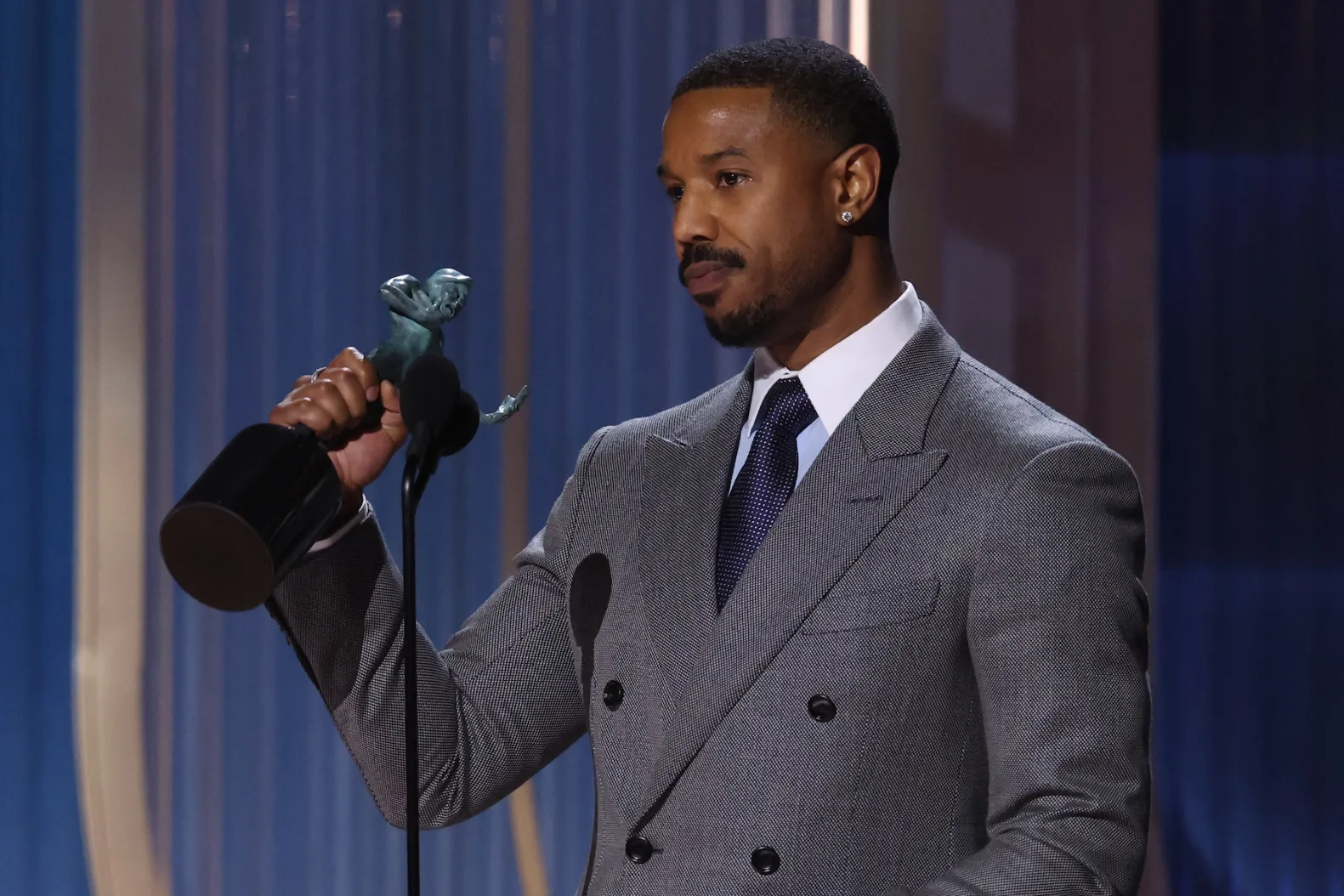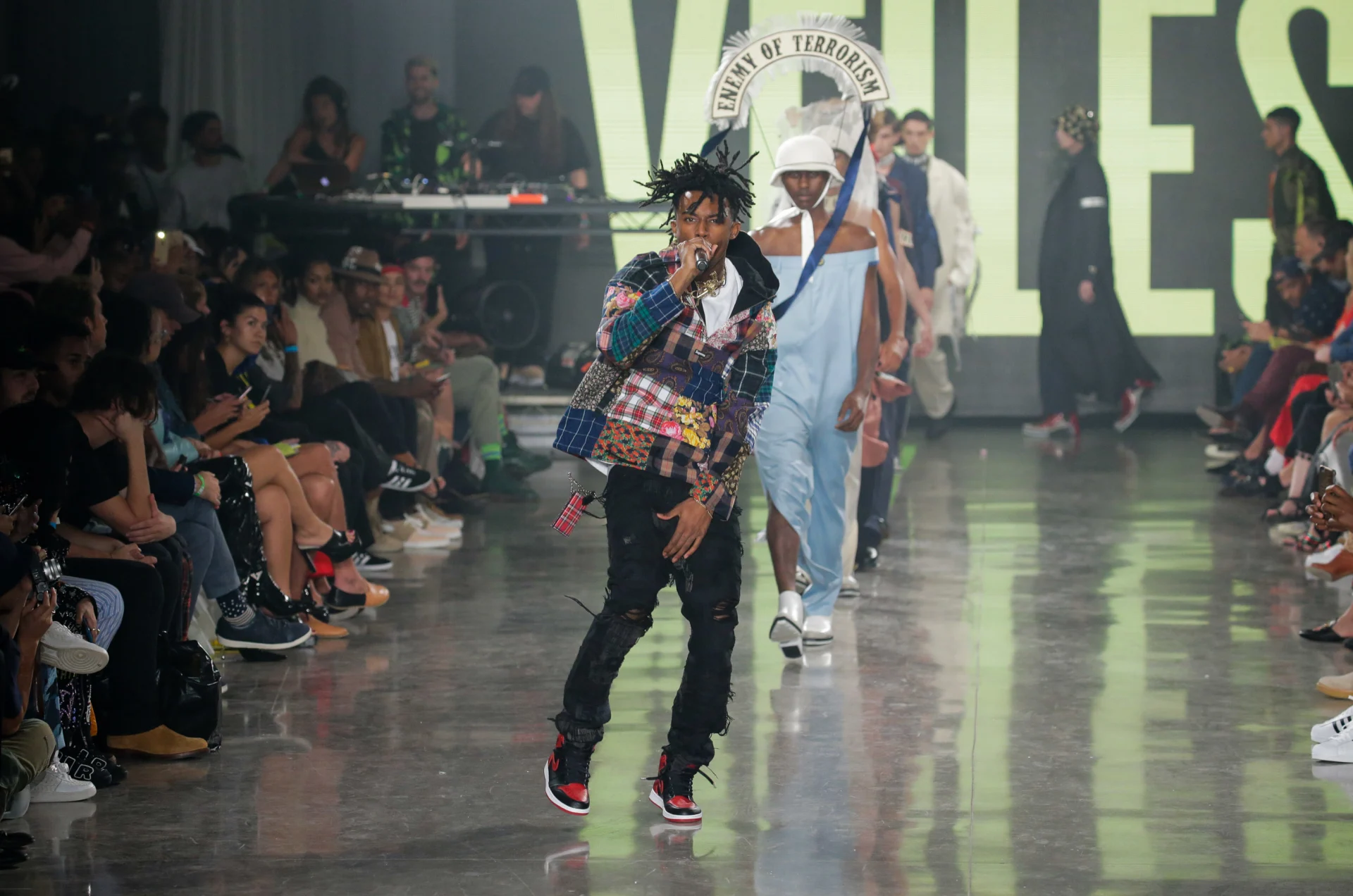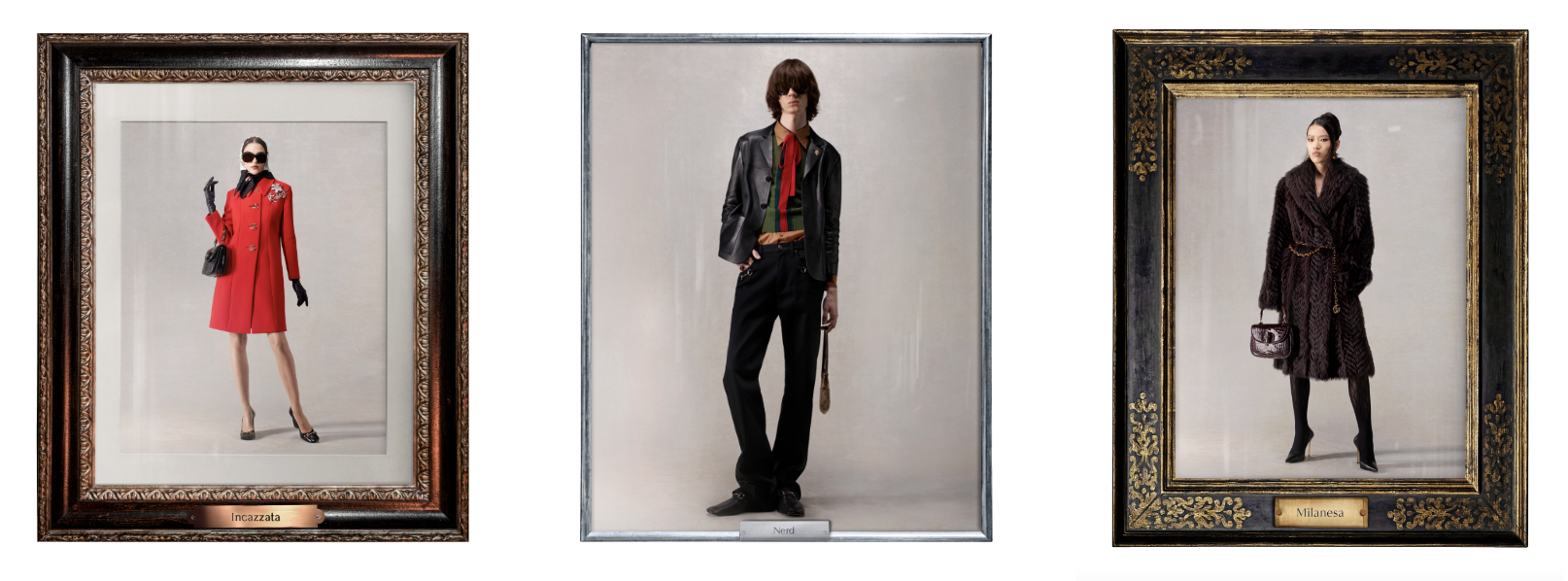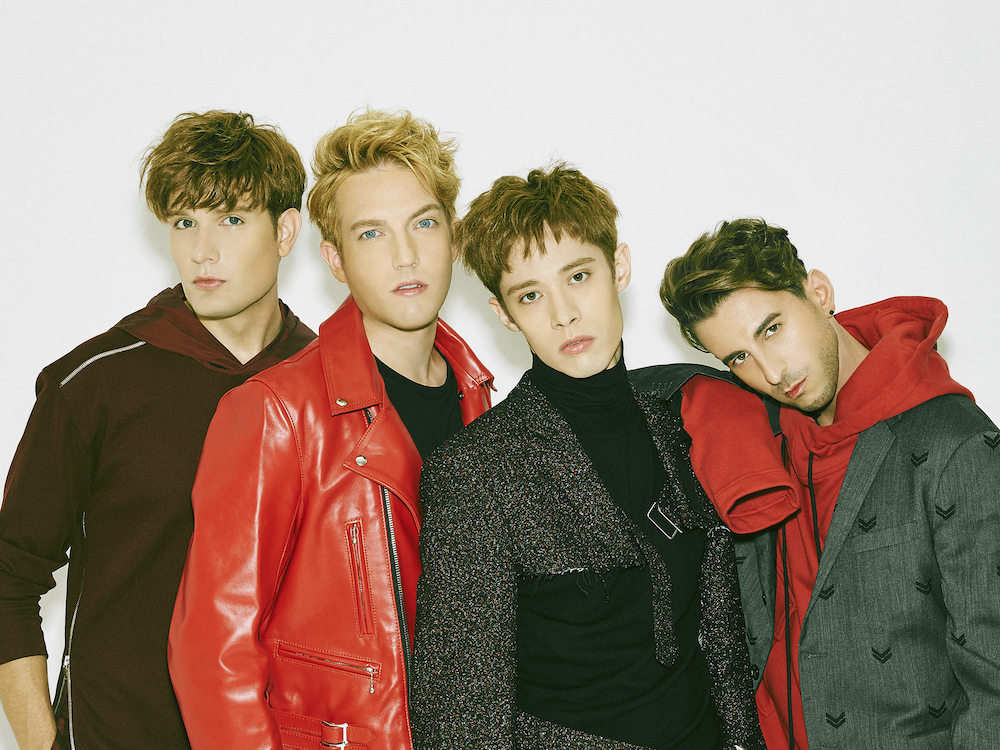
Anyone can become a sensation overnight. Dubbed “the world’s most controversial K-pop group”, EXP EDITION have sparked heated discussions about cultural appropriation. Given that all four members are non-Korean, is EXP EDITION actually a ‘K-pop group’ or, as some might argue, a copycat?
It all started as part of a Masters of Fine Arts program at Columbia University. The founder of IMMABB Entertainment, Bora Kim (along with Karin Kuroda and Samantha Y. Shao) took what was meant to be a documentary art project and turned it into an exploration of what K-pop is, playing with the boundaries of cultural exchange. Raising US$30,000 on Kickstarter in 2015, EXP EDITION was ready to leave the art world behind and set their hearts on making it big in Seoul. However, they’ve been receiving criticism on everything – from their pronunciation to their looks – but nothing has hit as hard as the accusation of cultural appropriation, particularly from Western K-pop fans.
To clarify and set the record straight on who EXP EDITION is and what their goals are, we spoke to the members of EXP EDITION, Frankie, Šime, Hunter and Koki, and asked some hard questions about cultural appropriation and the industry:
What made you decide to join the project and eventually move to South-Korea?
Frankie: “To be honest, we didn’t know what to expect from this project — it was a concept created by an art collective at Columbia University, which would eventually turn into a documentary. At the time, we were working in New York as actors and models. Suddenly, we found ourselves in a small studio in Harlem, performing at Art Basel Miami and MoMA. Whenever we reached a milestone, we would shift our focus on the next one so when we got the opportunity to move to South Korea, there was no other option – we didn’t want to regret it.”
Opinions about the group seem to be pretty divided – from gaining fans to receiving death threats – how do these comments affect you and how do you handle it?
Frankie: “It still happens now and then – and when it does, we can’t believe it. I think our families are particularly scared and worried about what they read online. When we first saw the death threats, we were taken aback and shocked. We had no idea anyone could have such a strong opinion about what we were doing. All we were thinking of was ‘what did we get ourselves into?’”
Šime: “Looking back on it now, I think we were pretty naive about the reactions. Our fear was that people would think we were making fun of K-pop when on the contrary, it’s something we fell in love with a long time ago. When I read the first article that was written about us in a Croatian publication, I was embarrassed that they were making fun of the group. That’s when I realized how important this conversation is to us.”
Hunter: “If anything, they’ve just inspired us to keep doing it. At least some of the comments are pretty creative.”
Koki: “We’ve become our own biggest trolls.”
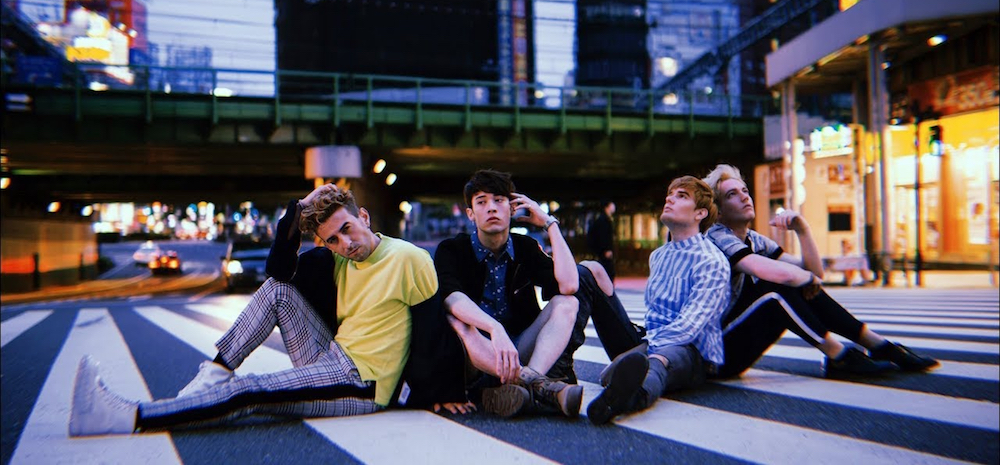
Most entertainers in South Korea have gone through many years of training to get to where they are. Sometimes groups debut but aren’t able to make it. Do you think you found a fast-track into the industry?
Šime: “There was no other path to take, the road that other aspiring artists in South-Korea have taken just wasn’t available to us.”
Frankie: “We’ve been pursuing a career in entertainment from a young age, even moving to New York city. Šimewas a child pop star in Croatia so he has been doing this ever since he was young, but no one even talks about that.”
Koki: “We meet artists who haven’t trained for that long. Some have trained up to 10 years and others just for a few months before they make their debut. We don’t have the same system as they do here. In the West you have to find individual coaches to help you with every aspect of becoming an entertainer – even funding it yourself.”
Frankie: “We were thrown into the system as soon as we landed in Seoul – dancing until three in the afternoon, followed by singing lessons, Korean class and recording sessions every evening. Since we’ve been working with Korean professionals, we’ve had no other choice but to adapt.”
Considering the differences between EXP EDITION and other groups, if the music you’re making falls under the ‘K-pop’ genre, do you think the path you’ve chosen could become a disadvantage to achieving greater success in the future?
Frankie: “That’s hard to say but we hope it wouldn’t be. We continue to evolve as a group and although we have dreams and goals, we can’t say where we’ll be in five years. In Korea, what is most important is how great you are as a performer and singer, why the project started or what the conversation is doesn’t really matter.”
Šime: “We’ll let the music speak for itself. Some might think the project is already over but for us, it’s more than making people think about certain social issues. People will either be intrigued or not. We understand there might be a conflict for some but perhaps those are the people we shouldn’t be working with anyway.”
As ‘the world’s most controversial K-pop group’, could you tell us what your definition of cultural appropriation is?
Koki: “I guess the true definition is when a majority group with power takes ownership of elements from a minority group – and makes a profit out of it. Honestly, it’s complicated. The world we see today has evolved through trading of cultures and the Internet as well as social media have made that possible.”
Hunter: “I try to understand why they see it this way and where they are coming from but when I read those comments and see how serious people take what we do, I feel they just don’t know our intentions.”
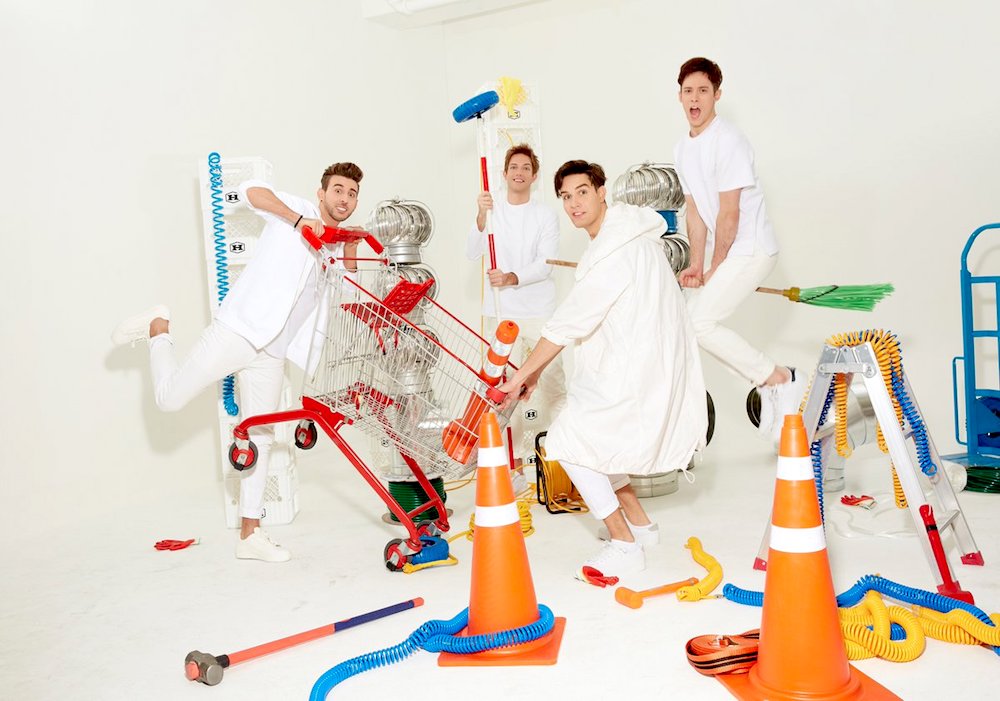
Do you think you’re appropriating the Korean culture?
Frankie: “I’d say we are appreciating the culture. When we received all of this attention, we thought about whether we should start calling ourselves a K-pop-inspired group instead. The thing is, we want to give it our all so we decided to immerse ourselves in everything from learning the language to adapting the training system. There’s so much to love about South Korea and they seem to be flattered by what we do – seeing it as a testament of how big the music has become. Seo Taiji and Boys brought Hip Hop to Korea in the nineties, that’s when K-pop was born. Although they created a lot of controversy at the time, they took a leap to make the music their own without realizing they were creating something of this magnitude. We hope to have such an impact.”
Šime: “Perhaps this is a sheltered opinion but I never really thought about it until we received negative comments. I spent most of my life in Croatia and as an entertainer I love to challenge myself by exploring different genres – K-pop just felt fresh and new. Studying music, you learn it as a culture, with Jazz, Hip Hop and Opera at the centre of it. Because we are the first ones, we get all sorts of feedback but who knows, a couple of years from now there may be other non-Korean groups in this industry.”
Cultural appropriation has long been a topic of conversation within certain ethnic groups but only recently has it become a global debate. Having sparked this discussion in relation to the K-pop industry, how does it feel to be at the centre of it?
Frankie: “I spoke to a fan from France who felt inspired by the group to audition for multiple entertainment agencies in South Korea. Because we got to where we are now, she found courage to follow her dreams. We are rooting for her.”
Koki: “Through the VICE documentary we were able to reach a lot more people, some of whom didn’t even know what K-pop was, which has added a new element to the conversation. It’s one thing to look at it subjectively as a K-pop fan but when someone doesn’t know what the genre is, it brings more outsider views and opinions, which makes the conversation all the more interesting.”
K-pop fans seem to have strong opinions about who you are and what you do – even making such statements as not wanting white people in “their” music. These comments seem to come from non-Koreans, which makes them all the more surprising. What is it about the K-pop industry that creates such a strong connection between these groups and their fans?
Koki: “They seem to take refuge in being a fan of K-pop, it’s a safe place for them. It’s not mainstream and they become very invested in it, which leads to feeling a sense of ownership. When they see people who look a lot more like them, it may disrupt the idea.”
Frankie: “When you first see K-pop, it’s so refreshing and once you discover the underground world of fandom, it draws you in. Through social media and V LIVE (a broadcasting app), you’ll get the feeling that you know these idols personally — there’s a sense of community because of that. Everything these groups do is for their fans; it’s a service to them. Because of that, they deal with a lot of pressure, any mistake might break the fantasy. Fans are just very passionate that way.”
Šime: “If you’re an idol, every aspect of your life will cater to the character they’ve creating for you. They are put on a pedestal and because of that aren’t able to live their lives the way they might like. It’s very unforgiving – they can’t even date.”
There are plenty of Asian (non-Korean) singers in K-pop. Koki – since you’re half Japanese – have you noticed that people respond differently to you compared to the rest of the group?
Koki: “Yes, it feels like I’m put on a different scale. Šime sometimes gets negative feedback when he is a much better singer, it feels like there’s a bias against him.
Frankie: “They seem to feel more connected to him because he looks more like other artists in the industry. It’s interesting to witness. Some people seem to disregard that he is half Asian, they just call us an all-white group.”
What is the one thing the world should know about EXP EDITION?
Frankie: “For the people who are still wondering whether or not we’re a K-pop group, when you live in Seoul and are signed to a Korean entertainment agency and perform at K-pop live stages, you meet the requirements – and we check those.”
Koki: “Before we had our official debut, we sang on stage at Mnet’s ‘I Can See Your Voice 4’ where members of Super Junior were judging the performances. Even though this didn’t make the episode, the members were so amazed to see that K-pop had reached so far and encouraged us to never give up and keep going. So far, Koreans have been extremely supportive of us.”
Šime: “We are passionate about what we do and aren’t here to offend or disrespect anyone. All we want is to celebrate what K-pop has become (and be part of where it is going).”
Hunter: “The comments won’t stop us — they do say, if you have haters you are doing something right.”
Check out the group at @expedition.official on Instagram, Facebook or Youtube.



